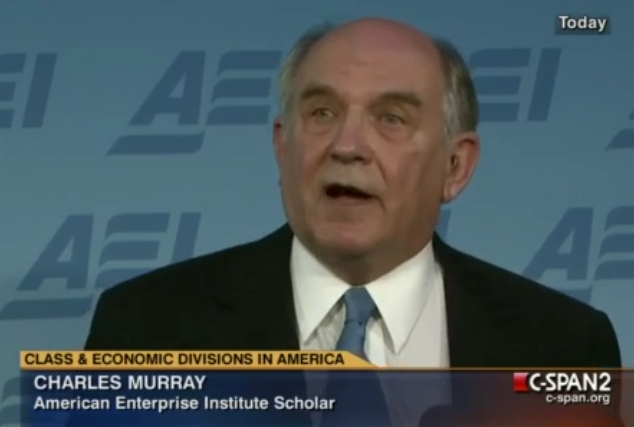
Murray's 1994 book "The Bell Curve," co-authored with Harvard psychologist Richard Herrnstein, evoked furious and undeserved denunciation. It will be interesting to see whether there is a similar reaction to his latest and much shorter book, "Facing Reality: Two Truths About Race in America."
His first truth is that "American Whites, Blacks, Latinos, and Asians, as groups, have different means and distributions of cognitive abilities." Murray makes mincemeat of arguments against IQ tests and shows that they're highly correlated with achievement in schools and in later life. Asians have the highest average scores, followed by Whites, Latinos and Blacks.
Murray's second truth is that "American Whites, Blacks, Latinos, and Asians, as groups, have different rates of violent crime." Murray deftly extrapolates from the best available crime rates and shows that average violent crime rates are far above average among Blacks, somewhat above average among Latinos, somewhat below average among Whites and almost negligible among Asians.
For many Americans, these are uncomfortable (I have often used the word "unhappy") truths. Blacks are about eight times more likely than Whites (I use Murray's capitalization practice) to commit violent crimes. And I feel a twinge of discomfort in the below-average cognitive ability scores of some of my ancestral ethnicities.
Conventional media and academic elites routinely suppress these truths, apparently for fear that ordinary Americans would take them as a warrant for racial discrimination against individuals. To that argument, I reply, as I did in National Review in 1994 and in a Washington Examiner blog post in 2013, that ordinary Americans know better.
"They have learned, from school, from work, from everyday life, that there is wider variation within each measured group than between measured groups." They understand that averages don't reliably describe individuals, "that it is irrational to discriminate according to race or religion or ethnic group, and that it is rational to judge individuals on their own merits."
Voters who knew that Blacks on average score lower on tests had no difficulty seeing that Barack Obama had the above-average intelligence required for the presidency.
Group differences don't undermine the case against racial discrimination. They undermine the case for racial quotas and preferences made by advocates of identity politics, who make the absurd argument that in a fair society, all groups would be represented in all categories in exactly identical proportions.
Those in need of facing the reality of Charles Murray's two truths are not ordinary Americans, but elites — the corporate leaders, gentry liberal voters and human resources department lifers who cling desperately to the identity politics of Black Lives Matter organizers and the critical race theory hucksters.
They see individuals as inescapably defined by the groups in which they're born, and they argue that any statistical disparity is evidence of a systemic racism that can never be eradicated but must constantly be denounced. The result is the replacement of merit by racial quotas and preferences and the de-policing of high-crime areas and the nonprosecution of crimes until statistical differences disappear.
We're seeing these processes in operation already. The sharp rise in violent crime since George Floyd's death in May 2020 has ended about 2,000 additional Black lives. And the unprecedented increase in violent crime results in many more disadvantaged Black and Latino neighborhoods where, as Murray points out, high crime has made "many policy solutions inherently unrealistic."
Murray's own solutions may seem similarly unrealistic: Eliminate all racial quotas and preferences and their odious enforcement apparatuses, and reverse the increasingly unpopular de-policing policies imposed in so many cities during the past 13 months.
But as Murray warns the elites and others who resist facing reality and acknowledging his two truths about race in America, the alternative could be more fearsome: the spread of identity politics to the 60% of Americans defined as White. "If working-class and middle-class Whites adopt identity politics, disaster follows."
To prevent that, he urges liberals to embrace explicitly, and conservatives not claim a monopoly of, what he calls "the American creed" — the idea that people are "the equals of anyone else — equal before the law and possessing the same inherent dignity as anyone else," to be "judged on who they were as individuals, not by what social class they came from or how they worshipped God."
Not bad advice.


 Contact The Editor
Contact The Editor
 Articles By This Author
Articles By This Author